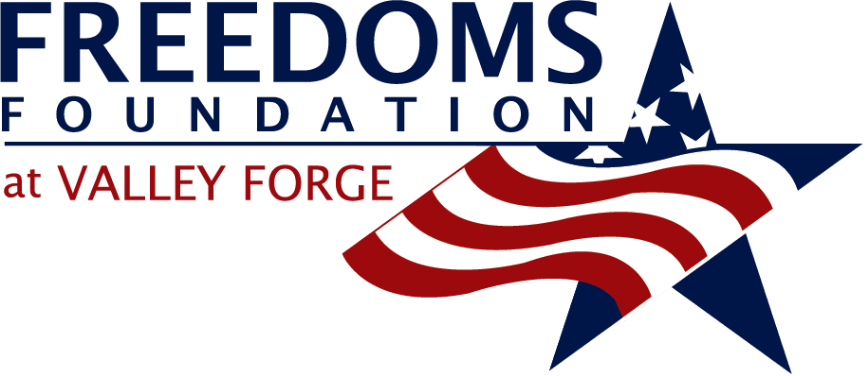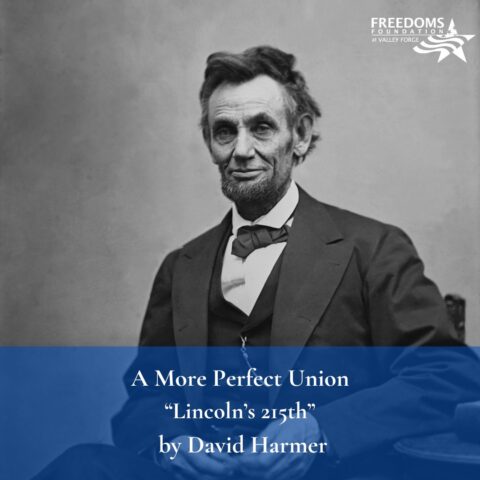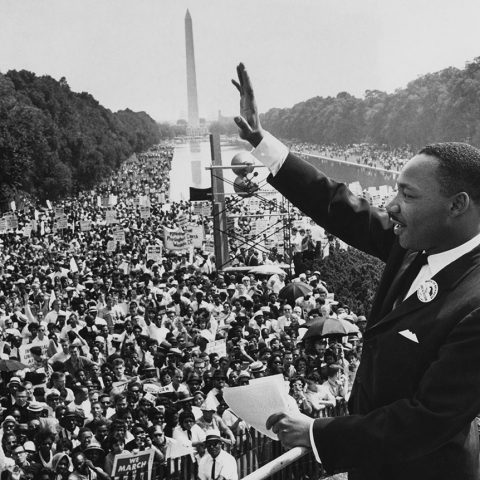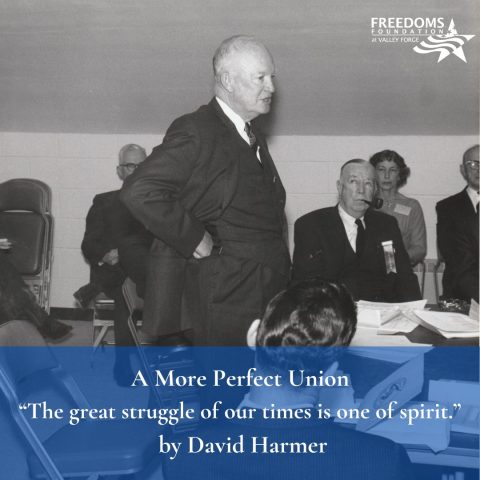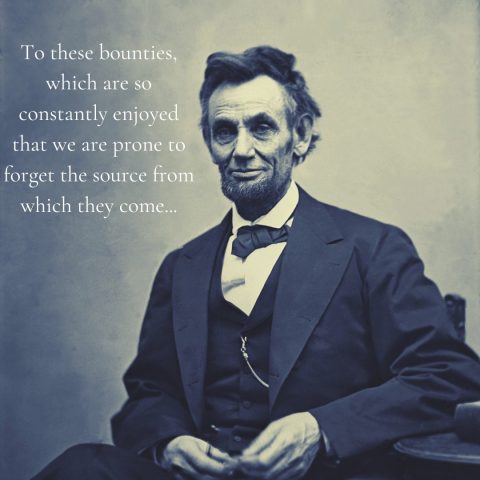Ike on the Air

By David Harmer
Turn the calendar back sixty years. It’s the summer of 1963. Two and a half years have passed since Dwight D. Eisenhower completed his service as 34th President of the United States. With Independence Day approaching, he participates in a radio interview. The Mutual Broadcasting System carries it nationwide; the Armed Forces Radio Network carries it worldwide. The interlocutor opens the broadcast by asking Eisenhower how he’s spending his time post-presidency. He answers: leading Freedoms Foundation at Valley Forge!
Why did Freedoms Foundation matter so much to him? Here’s the transcript:
A man who has spent his life in some kind of service of the United States, in my case so much of it in the military and then eight years in the White House, has acquired certain feelings of responsibility toward his country that he does not feel he can discharge just by sitting in his office and possibly even writing articles. He wants to do something to bring to the American people the lessons he thinks he has learned.
Among them is an awareness, a need for awareness, of what we have in our heritage of freedom. Because of my interest in this organization, and its work over the years, my belief that it is an effective way to awaken our people to their responsibilities in this regard, I became chairman of the board. And I must say not only have I enjoyed the work, but I think we are doing something very fruitful.
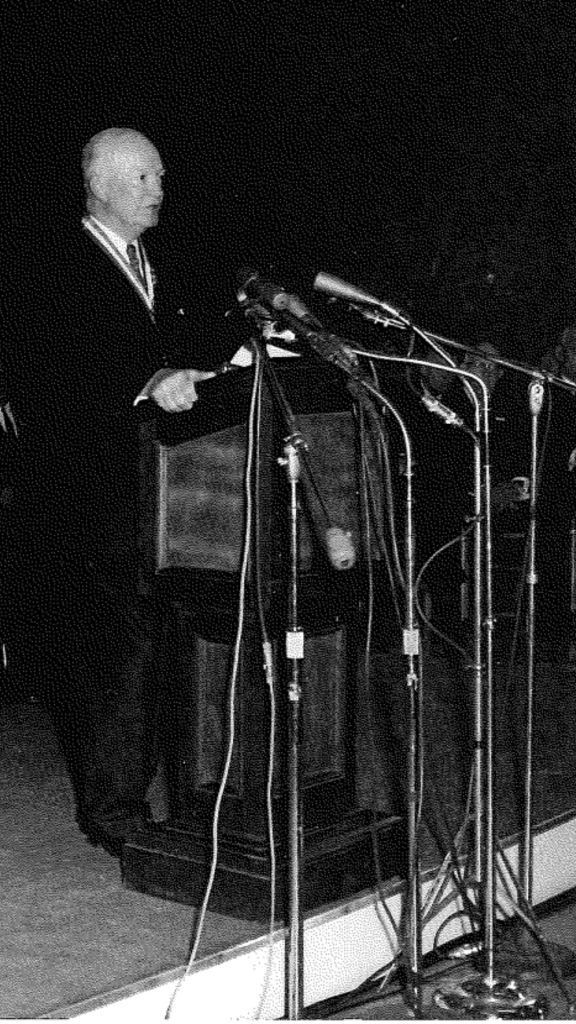
As Supreme Allied Commander, Ike had masterminded the military triumph of the Allies in World War II. As President of the United States, he had been the undisputed leader of the Free World. Even so, he feels a profound sense of unfulfilled duty. His post-presidential mission, pursued through his work at Freedoms Foundation, is “to awaken our people to their responsibilities.”
What are those responsibilities? If you were asked to identify the responsibilities of American citizenship, how would you answer?
Freedoms Foundation later posed that question to a distinguished panel of nationally prominent scholars and civic leaders. The result of their deliberations, the Bill of Responsibilities, guides our civic education programs to this day. But Eisenhower’s on the air; he has to answer off the cuff. He says:
Here is the very basic difference in the ideologies that have separated the world into two mutually antagonistic camps. On the one side of the iron curtain, the whole theory of government is that the individual is merely a servant of the state. He is to glorify the state, and he does what his bosses tell him to do.
Our whole concept of freedom is that we govern ourselves. Every one of us that participates in the study of the issues ahead of us, and who expresses his convictions as the philosophy that he wants to follow, the leaders that he believes best exemplify that philosophy, he votes for them and then he tries to support them and to keep himself informed.
This is good citizenship.
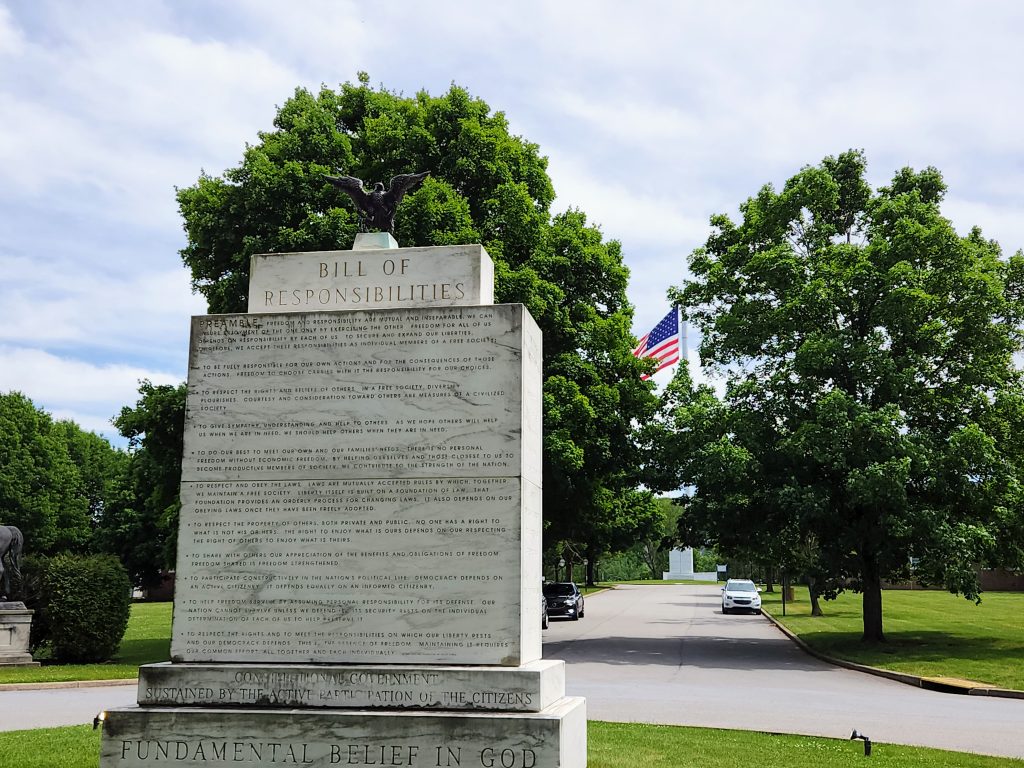
For good measure, he describes the converse of good citizenship, acknowledging the dangers and risks of self-government:
One of them is indifference. Another is a growth of pressure groups that sort of stultify the expression of true, informed, intelligently formed public opinion. Now, if government is going to be our servant and not our ruler, every one of us owes it to himself to keep informed, express his convictions emphatically, and not be confused by labels of any kind.
Eisenhower is echoing his predecessor, General Washington, who cautioned in his farewell address:
Let me now . . . warn you in the most solemn manner against the baneful effects of the spirit of party generally.
This spirit, unfortunately, is inseparable from our nature, having its root in the strongest passions of the human mind. . . .
It serves always to distract the public councils and enfeeble the public administration. It agitates the community with ill-founded jealousies and false alarms, kindles the animosity of one part against another, foments occasionally riot and insurrection.
These two great generals did much to ensure that our national independence was declared, secured, and preserved. There could hardly be a better way to celebrate this Independence Day than to adopt their counsel to practice personal independence, specifically independence of thought. Let’s not outsource our thinking to any party, candidate, channel, pundit, faction, or label. Rather, let us study the issues, think for ourselves, and do our part to ensure that public opinion is “intelligently formed.”
Happy Fourth!
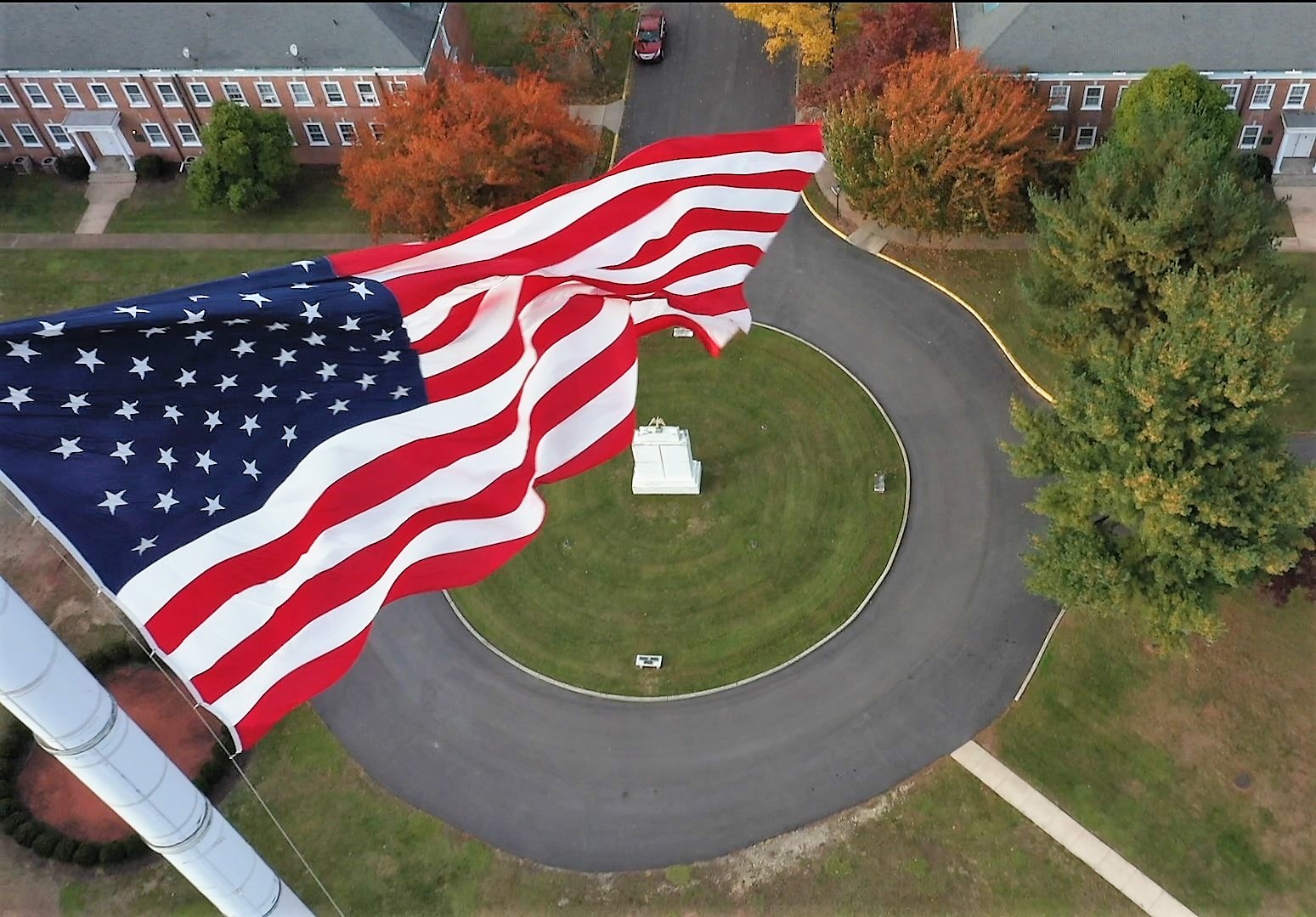
Donate Today
Supporting America’s first principles of freedom is essential to ensure future generations understand and cherish the blessings of liberty. With your donation, we will reach even more young people with the truth of America’s unique past, its promising future, and the liberty for which it stands. Help us prepare the next generation of leaders.
